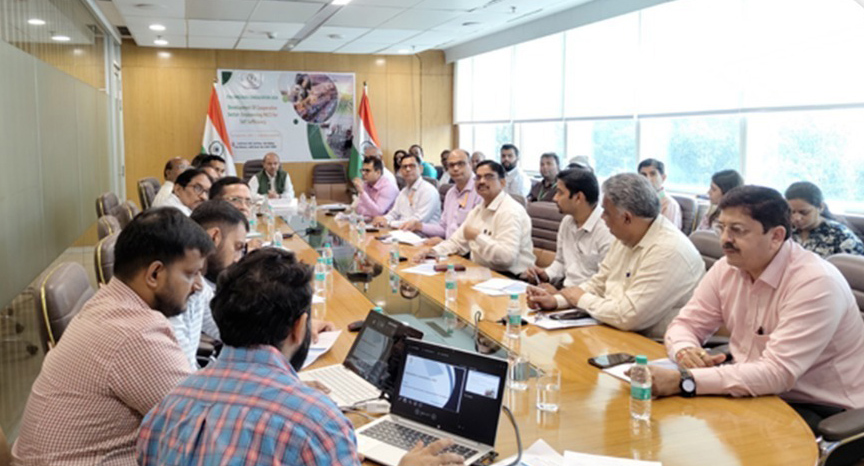A significant stakeholder consultation focusing on the “Development of Cooperative Sector: Empowering Primary Agricultural Credit Societies (PACS) for Self-Sufficiency” was held on Tuesday in the capital, bringing together key figures from various sectors to discuss strategies for strengthening cooperative societies across India.
The consultation was chaired by Dr. Ashish Kumar Bhutani, Secretary of the Ministry of Cooperation, and witnessed the participation of notable stakeholders, including Chairpersons and Managing Directors of National Federations such as the National Bank for Agriculture and Rural Development (NABARD). Additionally, over 200 stakeholders from across the country participated virtually.
In his opening remarks, Dr. Bhutani emphasized the government’s commitment to enhancing the cooperative sector in line with Prime Minister Narendra Modi’s vision of “Sahkar Se Samriddhi” (Prosperity through Cooperation).
He announced that the Ministry of Cooperation is on track to complete the digitization of all PACS in the country by the end of this year or by January 2025. The initiative aims to create 2 lakh new multi-purpose PACS, with a focus on covering uncovered and under-covered areas of the country, thereby extending the reach of cooperative societies to every corner of India.


In a significant announcement, Dr. Bhutani informed maize farmers that the Ministry is fully prepared to procure maize at the Minimum Support Price (MSP), as promised by Union Minister Amit Shah. He urged all maize farmers to register on the Farmers’ portal for procurement by the National Cooperative Consumer Federation (NCCF) and the National Agricultural Cooperative Marketing Federation of India (NAFED) under the Ethanol Blending Program.
This initiative aligns with the recently revised targets for 20 percent ethanol blending in petroleum and diesel, with the timeline for achieving these targets being brought forward from 2030 to 2025-26.
The consultation also focused on the ongoing digitization of PACS, with discussions centered on bringing all functional PACS onto a common national software platform based on Enterprise Resource Planning (ERP).
This platform will link PACS with NABARD through State Cooperative Banks and District Central Cooperative Banks. To date, proposals for the computerization of 67,930 PACS from 30 States and Union Territories (UTs) have been sanctioned under the project.
The Central Government has released Rs 654.23 crore to the States and UTs for the procurement of hardware, digitization of legacy data, and establishing a support system. Additionally, Rs 141 crore has been allocated to NABARD for the project. As of August 30, 2024, a total of 31,301 PACS across 29 States and UTs have been onboarded on the ERP software, with 21,477 PACS going live. A total of 54,654 PACS have received hardware for digitization.
To further strengthen PACS, the Ministry has framed model bye-laws to transform these societies into viable business entities. These bye-laws enable PACS to undertake economic activities across various fields, including agriculture, distribution of petroleum products, fertilizers, and seeds.
The consultation concluded with a consensus on the need for continued collaboration among stakeholders to ensure the successful implementation of these strategies. There was a strong commitment to empowering PACS, enhancing their capabilities, and supporting them in becoming self-sufficient entities that can significantly contribute to India’s agricultural and economic development.























































That’s a fantastic Preponement of almost five years for digital transformation. Great for PACCs